- Clone
- Poly4053 (See other available formats)
- Regulatory Status
- RUO
- Isotype
- Goat Polyclonal IgG
- Ave. Rating
- Submit a Review
- Product Citations
- 93 publications
| Cat # | Size | Price | Quantity Check Availability | Save | ||
|---|---|---|---|---|---|---|
| 405306 | 500 µL | 113€ | ||||
This polyclonal goat anti-mouse IgG antibody reacts with the heavy chains of mouse IgG and with the light (kappa and lambda) chains common to most mouse immunoglobulins. No cross-reactivity has been detected against non-immunoglobulin serum proteins. This antibody has been solid-phase absorbed to ensure minimal cross-reaction with rat, human, bovine, horse, and rabbit immunoglobulins, but it may have minimal cross-reactivity with other subclasses of mouse immunoglobulins.
Product DetailsProduct Details
- Verified Reactivity
- Mouse
- Antibody Type
- Polyclonal
- Host Species
- Goat
- Formulation
- Aqueous buffered solution containing a carrier protein and preservatives.
- Preparation
- The polyclonal antibody was purified from goat antiserum by mouse immunoglobulin affinity chromatography.
- Concentration
- Lot-specific (to obtain lot-specific concentration and expiration, please enter the lot number in our Certificate of Analysis online tool.)
- Storage & Handling
-
The antibody solution should be stored undiluted between 2°C and 8°C, and protected from prolonged exposure to light. Do not freeze.
To obtain lot-specific expiration date, please enter the lot number in our Concentration and Expiration Lookup or Certificate of Analysis online tools.)
This product has a shelf-life of 12 months or less. Please use our Expiration Lookup Tool to verify the expiration date of your lot of product - Application
-
ELISA - Quality tested
WB, IHC - Reported in the literature, not verified in house - Recommended Usage
-
Each lot of this antibody is quality control tested by ELISA assay. Do not use this product beyond the expiration date. For ELISA or Western blot analysis, the reagent should be titrated between 1:2,000 - 1:5,000 to determine optimal conditions. For IHC on tissue sections, the reagent should be titrated between 1:500 - 1:2000 to determine optimal conditions. It is recommended that the reagent be titrated for optimal performance for each application. Avoid using diluent solutions containg sodium azide. Sodium azide is an inhibitor of horseradish peroxidase.
- Application Notes
-
This polyclonal goat anti-mouse IgG antibody is useful for capture or detection of mouse IgG in ELISA.
-
Application References
(PubMed link indicates BioLegend citation) -
- Scotta C, et al. 2008. J Immunol. 181:1025-33. PubMed
- Gao X, et al. 2014. Cell Mol Neurobiol. 34:257-68 (ICC)
- Winters T, et al. 2014. EMBO J. 33:1256-70.
- Product Citations
-
- RRID
-
AB_315009 (BioLegend Cat. No. 405306)
Antigen Details
- Distribution
-
B cells
- Gene ID
- 16059 View all products for this Gene ID
- UniProt
- View information about IgG on UniProt.org
Related FAQs
Other Formats
View All IgG Reagents Request Custom ConjugationCustomers Also Purchased
Compare Data Across All Formats
This data display is provided for general comparisons between formats.
Your actual data may vary due to variations in samples, target cells, instruments and their settings, staining conditions, and other factors.
If you need assistance with selecting the best format contact our expert technical support team.
-
APC Goat anti-mouse IgG (minimal x-reactivity)
-
Biotin Goat anti-mouse IgG (minimal x-reactivity)
-
FITC Goat anti-mouse IgG (minimal x-reactivity)
-
HRP Goat anti-mouse IgG (minimal x-reactivity)
-
PE Goat anti-mouse IgG (minimal x-reactivity)
-
Purified Goat anti-mouse IgG (minimal x-reactivity)
-
Cyanine3 Goat anti-mouse IgG (minimal x-reactivity)
-
PE/Cyanine7 Goat anti-mouse IgG (minimal x-reactivity)
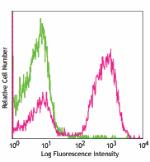
Human peripheral blood lymphocytes stained with purified mou... -
PerCP/Cyanine5.5 Goat anti-mouse IgG (minimal x-reactivity)
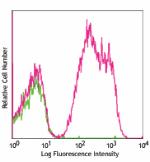
Human peripheral blood lymphocytes stained with purified mou... -
DyLight™ 488 Goat anti-mouse IgG (minimal x-reactivity)
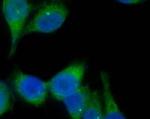
Hela cells were stained with anti-Tubulin-γ and secondarily ... -
DyLight™ 649 Goat anti-mouse IgG (minimal x-reactivity)
-
Alexa Fluor® 594 Goat anti-mouse IgG (minimal x-reactivity)
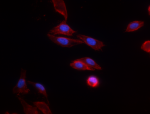
HeLa cells were fixed with 1% paraformaldehyde (PFA) for 10 ... 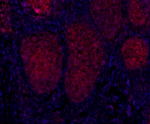
Frozen human tonsil section was fixed with 4% paraformaldehy... 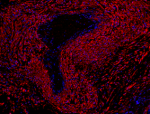
Human paraffin-embedded placenta tissue slices were prepared... -
APC/Cyanine7 Goat anti-mouse IgG (minimal x-reactivity)
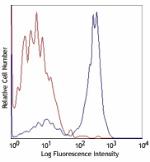
Human peripheral blood lymphocytes stained with purified mou... -
Brilliant Violet 421™ Goat anti-mouse IgG (minimal x-reactivity)
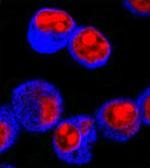
293E cells were stained with purified anti-tubulin-alpha (cl... 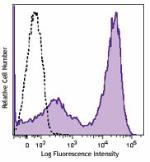
Human peripheral blood lymphocytes were stained with purifie... -
Alexa Fluor® 488 Goat anti-mouse IgG (minimal x-reactivity)
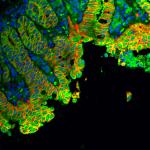
Frozen mouse intestine stained with purified anti-Ankyrin-B ... -
Alexa Fluor® 647 Goat anti-mouse IgG (minimal x-reactivity)
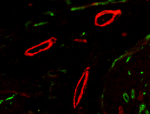
Human paraffin-embedded tonsil tissue slices were prepared w... -
Alexa Fluor® 555 Goat anti-mouse IgG (minimal x-reactivity)
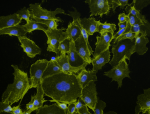
HUVEC cells were fixed with 1% paraformaldehyde (PFA), and t... -
Brilliant Violet 605™ Goat anti-mouse IgG (minimal x-reactivity)
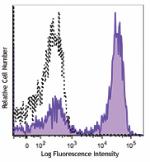
Human peripheral blood lymphocytes were stained with purifie... -
Brilliant Violet 510™ Goat anti-mouse IgG (minimal x-reactivity)
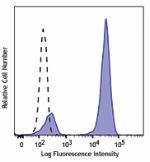
Human peripheral blood lymphocytes were stained with purifie... -
PE/Dazzle™ 594 Goat anti-mouse IgG (minimal x-reactivity)
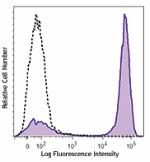
Human peripheral blood lymphocytes were stained with purifie... -
PerCP Goat anti-mouse IgG (minimal x-reactivity)
-
APC/Fire™ 750 Goat anti-mouse IgG (minimal x-reactivity)
-
Spark YG™ 570 Goat anti-mouse IgG (minimal x-reactivity)
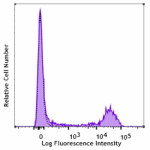
Human peripheral blood lymphocytes stained with purified ant... 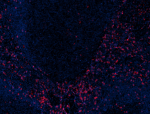
Human paraffin-embedded tonsil tissue slices were prepared w... -
Spark Red™ 718 Goat anti-mouse IgG (minimal x-reactivity)

IHC staining of Spark Red™ 718 Goat anti-mouse IgG (clone Po... 
IHC staining of Spark Red™ 718 Goat anti-mouse IgG (clone Po... 
HeLa cells were fixed with Fixation Buffer (Cat. No. 420801)... -
Spark PLUS B550™ Goat anti-mouse IgG (minimal x-reactivity)

Human peripheral blood lymphocytes were stained with purifie...

 Login / Register
Login / Register 





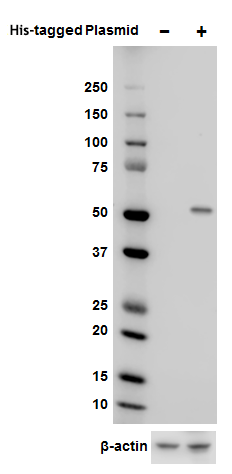
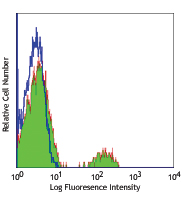







Follow Us